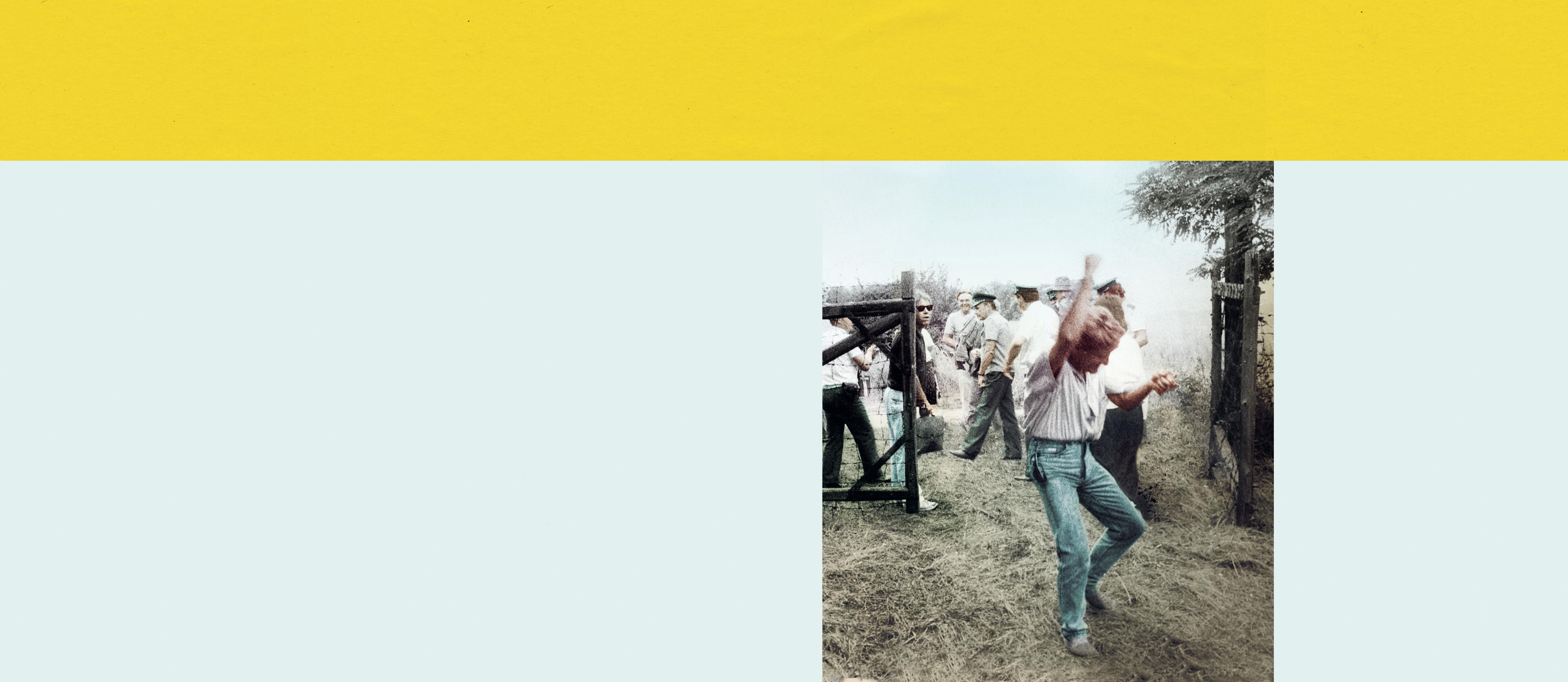

Picnic
The An Escape to Freedom and the Collapse of the Iron Curtain
Matthew Longo
‘Beautifully written and ingeniously plotted’ Patrick McGuinness
The Politics of Borders: Sovereignty, Security, and the Citizen after 9/11
The Picnic
An Escape to Freedom and the Collapse of the Iron Curtain
The Bodley Head, an imprint of Vintage, is part of the Penguin Random House group of companies whose addresses can be found at global.penguinrandomhouse.com
First published in the United States of America by W. W. Norton & Company in 2024 First published in Great Britain by The Bodley Head in 2024
Copyright © Matthew Longo 2024
Matthew Longo has asserted his right to be identified as the author of this Work in accordance with the Copyright, Designs and Patents Act 1988
The Picnic is a work of nonfiction. Certain names have been changed and some individuals are referred to by initials, according to their respective wishes.
Book design by Daniel Lagin Production manager: Lauren Abbate penguin.co.uk/vintage
Printed and bound in Great Britain by Clays Ltd, Elcograf S.p.A.
The authorised representative in the EEA is Penguin Random House Ireland, Morrison Chambers, 32 Nassau Street, Dublin D02 YH68
A CIP catalogue record for this book is available from the British Library
HB ISBN 9781847927798
TPB ISBN 9781847927804
Penguin Random House is committed to a sustainable future for our business, our readers and our planet. This book is made from Forest Stewardship Council® certified paper.
For Genny & Gianni
DENMARK
Copenhagen.



.Bonn
SECTOR SOVIET SECTOR
French Sector
British Sector
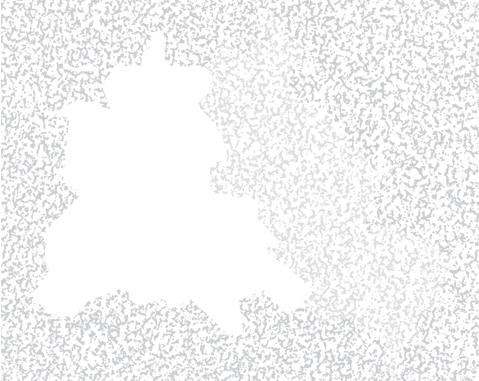
Soviet Sector
BERLIN
American Sector
Berlin.
EAST GERMANY
Leipzig.
Dresden.
WEST GERMANY

CZECHOSLOVAKIA
Munich.

Zurich.

SWITZERLAND

. Gdansk

.Warsaw

Vienna.
AUSTRIA

ITALY
.Rome
.Prague .Budapest


.Sopron .Debrecen
HUNGARY

YUGOSLAVIA
ALBANIA


SOVIET N MILES 0 250 KILOMETERS 0 400
U.S.S.R.

ROMANIA
Bucharest.

.Sophia
BULGARIA

GREECE
Athens.
ST




SOPRON
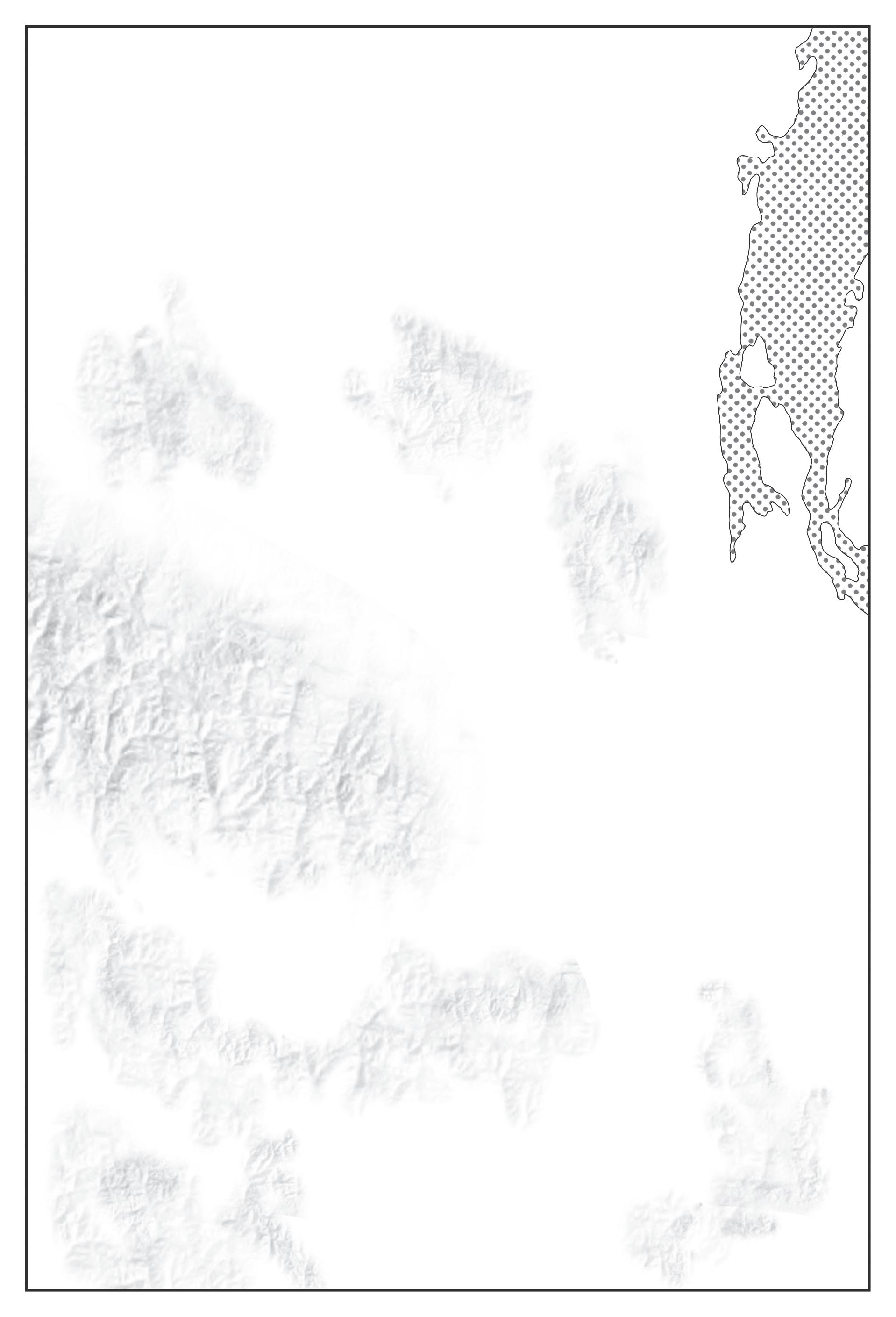
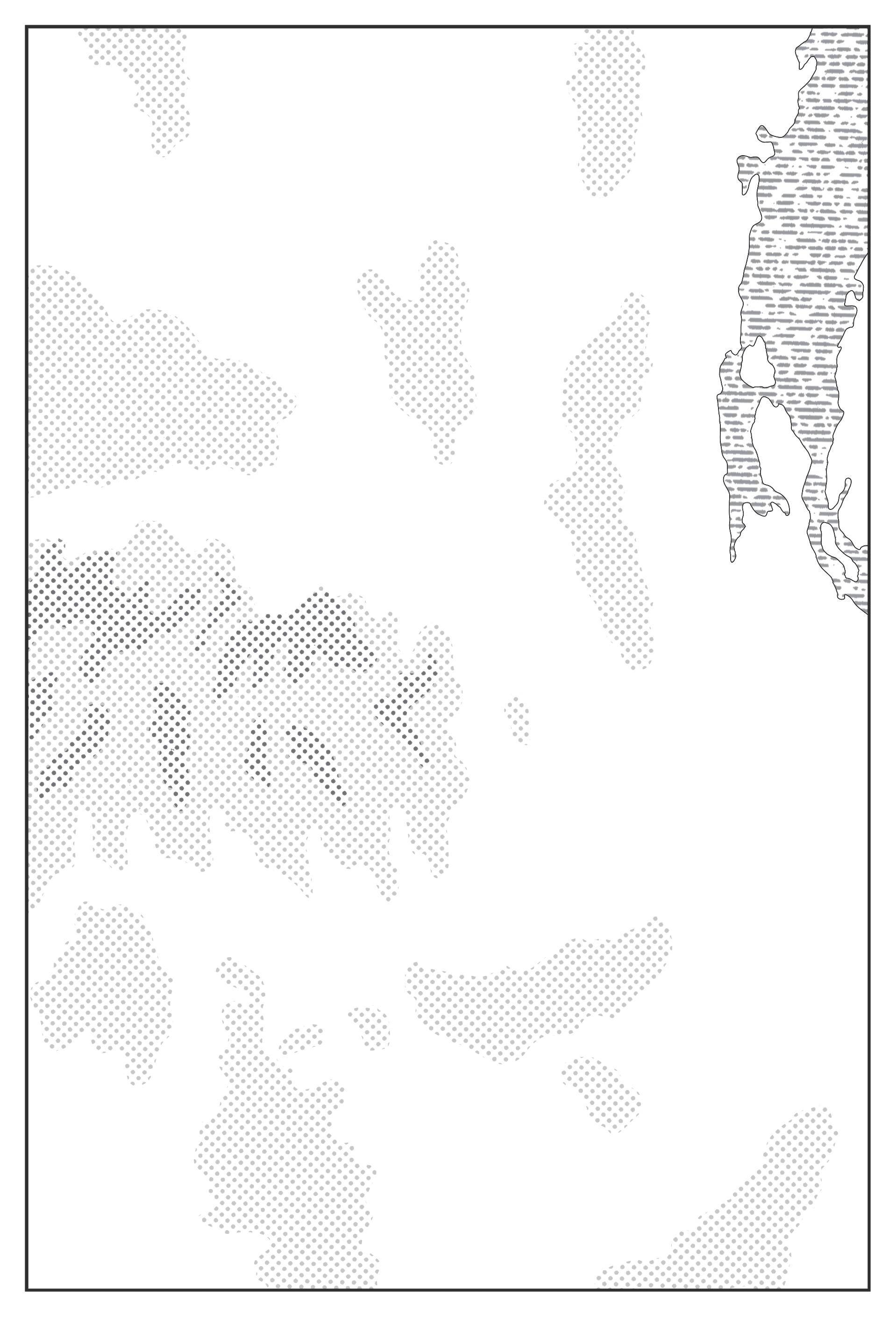
KEY Iron Curtain
Border Roads
Lake Ferto (Neusiedler See)
SITE OF BREACH
Sopronpuszta
PICNIC



. MORBISCH AM SEE
FERTORAKOS


FREEDOM’S PROMISE
László gives me a tour of what is nowhere. How did the East Germans even fi nd this place? he wonders aloud. It is anus mundi , he says. The asshole of the world.
No one knew about this part of the borderlands. On maps, only the line was represented, but not the vast stretch of no- go zones that comprised the Iron Curtain— the militarized frontier that emerged after World War II, dividing Europe between East (Soviet influence) and West (American influence). If the full boundary system wasn’t shown, the logic went, people couldn’t fi nd it. Thus, the reality of the border was itself divided. For the military, the border regime was precise. For the average person, it was mysterious and threatening.
László takes me to the edge of the woods. We follow the tree line down a slope through tall grass. When we round a bend, a clearing opens up. This is where the picnickers parked, he says.
The field on which László and I are standing was the site of the Pan- European Picnic, held on August 19, 1989, on the AustrianHungarian border, a giant, open- air party celebrating European togetherness and freedom, which furnished the stage for the greatest breach of the border in Cold War history— hundreds of East
German refugees dashing toward freedom— the initial tug by which the entire Iron Curtain would unspool. Or, as Helmut Kohl, chancellor of a newly reunified Germany, would later put it, where the “first stone was removed from the Berlin Wall.”
The picnic has largely been omitted from history books, pushed aside by the macroscopic politics of the end of the Cold War: Gorbachev and Reagan, the machinations of Moscow and Washington. This focus is understandable. But sometimes the most important moments in history are forged by ordinary people, under circumstances unexpected and strange. Sometimes in forgotten places too.
The field in Sopronpuszta today is utterly desolate: a sea of grass that obscures human pathways. It is a place fi lled with history but also emptied of it. A reminder that history cannot speak for itself; it must be given voice. Even anus mundi , if you listen to it, has a lot to say.
When I fi rst heard the story of the picnic, I had just spent years researching the US- Mexico border and its security expansion after 9/11. After so much time studying how borders get built up, I was eager to learn how they might be torn down— and the Iron Curtain no less, among the most terrifying instruments of oppression ever devised.
I am a child of the 1980s. I remember seeing the fall of the Berlin Wall on TV— watching the celebrations, all those people dancing atop the carcass of Leviathan. It is an indelible image of freedom, even today. One government toppled after another— Czechoslovakia in November, Romania in December— ending with the collapse of the Soviet Union in 1991. Then, for many in the West, the 1990s were boom years. It was the age of globalization and life- changing technologies. The Cold War was over and we believed the world would become a more interconnected place, that the reactionary forces of the past would give way to the progressive minds of the future. With the victory of liberalism, we had found the best, most just system of political organization.
The year 1989 was a triumphant one, but from the vantage of today there is something hard to reconcile about it too. Across the East peo-
ple are watching their liberties slip, especially in Hungary, under the increasingly authoritarian grip of Viktor Orbán; and the West, riven by inequality, seems to be splitting at the seams. Even that fi rst day, listening to László in Sopronpuszta, I had the feeling that the story of the picnic wasn’t just about the rush to freedom— the end of one era and the beginning of another— but something bigger, prefi guring the world we live in now. It marked a moment of ideological fracture we are still experiencing.
In our political discourse, we frequently throw around the word freedom as though its meaning is self- evident. It is a vision of doing what we want and going where we please, of voting booths and demonstrations, of large supermarkets with a dizzying array of colorful products and plentiful food.
But freedom is a complicated ideal. Over the course of this writing, in the United States, #BlackLivesMatter activism has been widespread in response to racist police brutality. At the same time, state responses to the COVID-19 pandemic have pitted antiestablishment groups against the federal government. These clashes emerge from different sides of the ideological divide. But they are also, each in their own way, about freedom— freedom to live in safety from state violence on the one hand; freedom from state paternalism on the other.
That is, people on both sides of the political spectrum are saying the same thing. They are also using the same word to say different things.
How did we get from the revolutionary fervor of 1989 to this? From tearing down the Berlin Wall to our new age of erecting barriers?
It is fall 2018, one of my fi rst trips to the Hungarian borderlands. The mix of wonderment and confusion is present, I suspect, on my face. László Nagy looks at me skeptically. He is the secretary of the PanEuropean Picnic ’89 Foundation, and its unofficial ambassador.
You have no idea how messy it’s been, he says. The infi ghting, the scandals . . . You’ll see at the thirtieth.
He is referring to the thirtieth anniversary of the picnic, a giant gala planned for the coming summer.
The picnic was decades ago, I say. Why would there be scandals now?
László regards me, his expression dark and cynical.
There’s a saying popular in Hungary, he says. The future is certain. It’s the past that keeps changing.
Chapter One
It was June 20, 1989, a warm summer night; by all accounts a perfect occasion for dreaming.
The dinner table at the Grand Hotel Aranybika (the Golden Bull), housed in a stately Art Nouveau building in Debrecen, Hungary, brought together an odd assembly of guests: Ferenc Mészáros— broadshouldered, scraggly haired, eyes seemingly focused on something beyond the present— and a group of other young, would-be activists from the East, alongside a family of aristocrats from the West. For Ferenc and many of the other Hungarians present, this was the most elegant dinner they had ever been invited to.
Ferenc had been in and out of gangs in his teenage years. He and his friends had engaged in petty mischief and hosted boxing matches outside the city with the other gangs, defending their turf and roughing up anyone who got caught in the middle. The high walls and chandeliers of the hotel— the building was commissioned by Alfréd Hajós, Hungary’s fi rst Olympic gold medalist; Béla Bartók played concerts there— its starched linens and wine that flowed unbidden into their glasses, all this was new and exciting.
So too was political activism. The Hungarians came from a wide range of backgrounds. What united them was their membership in the
MDF (Magyar Demokrata Fórum , or Hungarian Democratic Forum), a newly formed opposition group. Political parties were illegal in Communist Hungary, but as of the previous fall, some organizing was tolerated. The MDF advocated democratic elections and returning power to the people. This platform spoke to Ferenc. According to the Communist ideal, everyday workers were supposed to be empowered. But Ferenc knew this was just propaganda. His people had never enjoyed any kind of leadership, and many intellectuals expressed outright prejudice against them. When the MDF had started its chapter in Debrecen, Ferenc joined.
The occasion of the meal at the Aranybika was the arrival of Austrian diplomat Otto von Habsburg, then vice president of the European Parliament and would-be heir to the Austro- Hungarian Empire had it not folded half a century earlier. He was in town to deliver a lecture entitled “Hungary’s Chances of Catching Up,” at the Kossuth Lajos University, founded before the First World War by his father.
Habsburg was a frequent visitor to Hungary, given the historical connections between the two states that once formed the empire over which his family had presided— long before the Soviet Union took over after World War II, before the Communist era began. Hungary, now on the other side of the Iron Curtain, had fallen into economic disrepair and Habsburg was eager to discuss how it might forge a path forward. His speech at the university was packed; more than two thousand students attended.
The dinner after the talk was small and select, mostly friends of Lukács Szabó, a member of the MDF who had family connections to Habsburg and had invited him to come speak. Among the activists, reaction to the event was mixed. Some were eager to meet the famous scion; others were dubious. How could a man like that understand our situation? Ferenc had wondered. He decided to go anyway.
He carried his doubts about Habsburg through the talk and into the dinner. Conversation over the table began timidly. Political matters weren’t openly discussed at that time in Hungary— certainly not
in public. But something about the night, the fact that Habsburg was there, lent the air around them a kind of magic. Habsburg spoke in fluent Hungarian, a gesture to their shared past, and talked in terms of “we” and “our”— enough to temper even the hardest cynic.
Shortly, one by one, the young Hungarians jumped into the conversation, building upon Habsburg’s vision for a borderless Europe, a space of freedom and community that would bridge the Iron Curtain and reunite East and West. The night grew long, and cheerful, drunk as everyone was from the setting, this still- too-uncommon meeting of minds across the political divide. Eventually, the young activists began calling the elderly aristocrat Uncle Otto. When the conversation turned to Hungary, they waxed poetic about the reforms underway, how far they had come, how far they still had to go.
It was a good time for such imaginings. Since the rise of Mikhail Gorbachev in 1985 and the rhetoric of glasnost (political openness) and perestroika (economic restructuring) there was a feeling that the very foundation of the Soviet Union was trembling and something new was emerging. But it was a time steeped in uncertainty too. If the Soviet Union did fall, would it go quietly or in a paroxysm of violence? For all the talk of change, by the summer of 1989, Europe was still physically cut in half. On one side was the West, land of free movement and democracy; on the other, the Soviet Union’s unique brand of Communist authoritarianism. And between them, an Iron Curtain of munitions, cameras, and barbed wire that extended from the Baltic to the Black Sea.
From the vantage of Debrecen, a leafy, wide-avenued city close to the Romanian border, the Cold War remained hauntingly present. Surrounding the city were three Soviet barracks, a training area, and the second biggest military airport in the country. As a border city, Debrecen operated as a transit hub for the more than one hundred thousand Soviet troops stationed on Hungarian soil. No one expected them to do anything, but the last time they had, in 1956, there had been a massacre.
This was only a generation ago. Many of the activists present had
parents who’d taken part in the uprising, had grown up listening to stories of the brutal Soviet crackdown that followed.
As the evening at the Aranybika drew to its close, an uncomfortable silence set in. Everyone knew how challenging it was to affect political change. They were all too aware of the barriers that still circumscribed their lives— the Wall that divided Berlin; the Iron Curtain, which despite recent reforms felt as uncompromising as ever.
At this point, Ferenc spoke up. He shared the grand vision of a united Europe, where peoples were not separated by barbed wire and a spirit of togetherness could reign. But he felt that a fancy hotel was no place to talk about it. We should be out with the people, he said, out by the Iron Curtain itself.
We should throw a party, he said. A picnic.
Ferenc had big dreams. He envisioned a gathering at the border, with Austrians on one side and Hungarians on the other. Maybe they could have a bonfi re, roasting pigs on either side. Or maybe they could pass pieces of sausage or cold beers back and forth across the barbed wire. After his proposal the conversation took off , the others parrying ideas in wine- soaked fervor, each coming up with something more ridiculous than the last.
Everyone had a good laugh and went home. Surely the state would never actually allow such a thing. And what could they even do to set it up? After all, they lived about four hundred kilometers east of the Austrian border— a long distance in any era, let alone one without basic telecommunications. Ferenc hadn’t understood yet that the Iron Curtain was not really a line but a several kilometers-wide expanse of electric fencing and military installations. He had never been to the Austrian border. Before his dinner with Habsburg, he had never even met an Austrian.
Still, the thought lingered. What better way to thumb their nose at this most despised institution— the Iron Curtain— emblematic of the freedoms forbidden them. But how could they do it? It seemed impossible.
IN AUTHORITARIAN SOCIETIES, PEOPLE GROW USED TO LIVING
off their dreams. In many parts of the Eastern Bloc, political repression was so ruthless that activism of any sort was almost unimaginable. In Hungary, conditions were a bit better— it was the most open of the eastern states. But overt political organizing was still a terra incognita. Certainly there was no protocol that would-be activists like Ferenc could point to. They had to be guarded— their meetings were infi ltrated by the secret police and its informants, including friends and family members.
And yet, the more Ferenc thought about the picnic, the larger it grew in his mind. On June 30, a little over a week after the dinner with Habsburg, Ferenc raised the idea at a meeting of the Debrecen chapter of the MDF, held at their usual spot, a cozy, unassuming beerhouse called Kisdebrecen (Little Debrecen), with a scratched-up, wood paneled interior and a patio out back. Ferenc spoke excitedly about the idea, the dramatic spectacle it would be.
The picnic would represent community and freedom, he said— the dream of life without political constraints, of not being told where one could or couldn’t go, what one could or couldn’t do.
When Ferenc fi nished his oration, he looked expectantly around the room but his words were met coolly. There were much more important things to be working on than a picnic, the MDF leadership told him. They were trying to become a real political party, after all.
Ferenc might have given up on the idea then and there, if not for a young woman who stood up from her seat in the back of the crowded chamber. I’ll help organize it, she said.
Mária Filep came from a long line of anti- Communist dissidents. Her father had fought in the uprising against Soviet rule in 1956 as a messenger delivering secret news among the insurgents. Though only a child then, Mária remembers it vividly, even watching the Soviet tanks as they rolled in. Her family remained political even after the
revolution was suppressed. They listened together to the illegal radio broadcasts, usually on low volume with the windows closed, even in the summer. The broadcasts were on in the background when Mária went to sleep.
Radio Free Europe was my bedtime story, she likes to say.
By 1989, Mária had already been politically active for some time. That previous fall she’d begun organizing support for the persecuted Hungarian minority in Transylvania, a mountainous region in neighboring Romania, living under the brutal dictator Nicolae Ceaus , escu. She had been looking for a new cause to rally behind. A picnic at the Iron Curtain? The idea was so outlandish— she was instantly hooked. Mária and Ferenc became the nucleus of a team. Whereas Ferenc was a dreamer, Mária was a doer. She worked at a construction company with access to a telephone— a rarity in Communist Hungary, which had the fewest telephones per capita in the whole Eastern Bloc. (The Hungarian state decided the people didn’t need them, a restrictive but shortsighted move. By contrast, Ceaus , escu’s Romania encouraged phone use; that way the state could listen in.)
Awhirl with energy, Mária soon took charge. She thought Ferenc’s plan should be broader and suggested inviting the participants of a group she was involved in— the Sorsközösség, or Common Fate Camp— which gathered reform-minded peoples from across the East, from Estonia to Yugoslavia. The Iron Curtain was despised by everyone, she thought, so they should all protest it together.
Soon they had a name— the Pan- European Picnic— and a draft program. They even had a logo, a dove bursting through barbed wire. The target date was mid-August, less than two months away.
Ferenc and Mária knew the challenges of staging such an event would be immense. The borderland was a dangerous, prohibited place. And they had neither people nor funds. But they decided to go ahead anyway. Once they started planning others would join in, they reasoned.
But now came the hard part: What would it mean to actually organize a picnic across the Iron Curtain?
WE TEND TO THINK OF THE IRON CURTAIN IN BINARY TERMS: IT was the world’s harshest border, until it wasn’t. But thinking in this way obscures the shifting tectonics taking place beneath the surface, rife with friction. In Hungary, reform had been brewing for some time behind the scenes, with upstarts within the ruling Communist Party (offi cially the Magyar Szocialista Munkáspárt (MSZMP), or the Hungarian Socialist Workers’ Party) embracing some of the same ideas— freedom and democracy, ending the Soviet occupation— as those toiling on the outside. Communication was thin between these groups and the path marked with obstacles. But the ground for activism was fertile.
Even so, at the picnic the line between redemption and bloodshed was razor thin. To understand how it came together, we have to rewind to November 1988 and the rise of Miklós Németh— the last Communist prime minister of Hungary— perhaps the most important fi gure of the last days of the Iron Curtain, but someone few have heard of. The story of Hungary’s transition begins with him.
Chapter Two
The close of 1988 was bitter cold, even by the standards of Hungary, situated on a fl at, windy plain that stretches from the foothills of the Alps on the west, all the way to the Carpathians to the east. In the halls of power in Budapest, it was colder still. Hungary was in the midst of a massive economic downturn, with spiking infl ation rates and astronomical foreign debt— the highest per capita in Europe. There was a lot of handwringing in Parliament but at root, no one knew what to do.
This wasn’t the Soviet Union: food remained on the shelves and queues didn’t extend interminably from every shop. But prices were rising and wages were falling. Discontent was growing in every sector, with factory workers warming their hands over coffee, and soldiers rationing coal in the barracks.
The state was in a downward spiral. It had to borrow large sums of money from the West just to keep the heat on— gas was purchased from the Soviet Union in hard currency, which Hungary didn’t have. The government was in a bind. If it went bankrupt, there would be riots. But so might there be if it cut off the gas.
And amid this frayed economy, the opposition was beginning to grow. As a placatory measure, earlier that year, the government had
passed a law that authorized political opposition— officially, the Association and Assembly Act. The reform was limited— these groups were not technically “parties,” as they didn’t have the capacity to compete in elections— but now they could legally organize. This had been a watershed, and the opposition ranks swelled.
Political activism was quite contained at this point, as most people were afraid to speak out. But a number of recent gatherings had turned into sizable rallies. Earlier that year, on June 27, 1988, as many as thirty thousand people packed the Heroes’ Square in central Budapest to protest the actions of Romanian dictator Nicolae Ceaus , escu, who had been persecuting ethnic Hungarians in Transylvania— the very cause that Mária Filep was simultaneously protesting in Debrecen. This was the largest demonstration anywhere in the Eastern Bloc for more than a generation.
For Communist Party elites, this was a dangerous development. Because of the national affection many Hungarians felt for their brethren, these rallies could not be simply suppressed; but nor could their democratic character be denied.
On October 23, students gathered at the Budapest Technical University to commemorate the quashed uprising against Soviet occupation in 1956. Thousands took to the streets; thousands more stood by their windows applauding, some brazenly on their balconies, others more furtively peeking out behind the glass. In principle, this rally was to honor reformers of the past, but everyone could read between the lines.
Elites within the ruling Hungarian Communist Party were growing nervous. They needed a solution to their economic woes, someone who could come in and right the ship. The answer arrived in the form of a talented young economist named Miklós Németh. At an extraordinary and contentious Party conference in May, the Central Committee removed the aging autocrat, János Kádár, from his perch as general secretary— he had been appointed by Moscow in 1956 after the revolution was suppressed— substituting another Party functionary, then prime minister Károly Grósz. Like Kádár, Grósz was vehemently against
political reform, but he was younger and better able to appreciate Hungary’s economic straits. The Party then selected Németh to take over as head of the government.
This was not an easy decision. Németh had for years been a loyal comrade, climbing Party ranks and proving his mettle. But he was a reformer, in favor of free markets and democratic elections; he had spent time in the United States, having won an economics scholarship to Harvard. Still, Party brass felt they had no choice. If things went well, they reasoned, Németh could save the system. And if not, they could blame him— and the other reformers— for their failure.
Németh took over as prime minister on November 24, 1988. At just forty years old, he was the youngest prime minister in the Eastern Bloc (and the second youngest in the world).
The path to reform wouldn’t be easy. As head of the government, Németh had some authority, but the real center of power was the Party, headed by Grósz. From the outset, rivalry between them was fierce. Németh wanted to be able to appoint his own cabinet, fi lling it with technocrats like himself, rather than politburo appointees. But Grósz wouldn’t tolerate this. He and the other Party hardliners were distrustful of Németh and had no appetite for radical reform. They wanted him on a tight leash.
For Németh, this lack of autonomy was crippling. He quickly understood he had been set up to fail. Privately, he referred to his appointment as prime minister as the kiss of death. He also discovered he was being spied on. There were bugs in his office; during one meeting of the Central Committee, snippets from private conversations with his aides were read aloud. Thereafter, Németh took to staging fictitious conversations in his office. He would engage in sensitive subjects only during walks outside, along the shores of the Danube.
Németh hadn’t been in power for a week when on November 29, Grósz gave an address to the Party faithful warning about reformers in government and the aggressive agenda they sought. He stoked fear of a “White Terror,” or violence against Communists, that might commence
if they— the Party, including the Worker’s Guard (Munkásőrség), its armed wing— were not vigilant. He referred to Németh and his fellow reformers as enemies within.
Political transitions are usually not easy, or unilinear, and fl ashpoints are manifold. And the broad geopolitical turmoil of the time only exacerbated conditions on the ground. To those in the West, Gorbachev rocketed to prominence as the reformer who would help bring an end to half a century of nuclear stalemate. But in the East, Gorbachev’s rise was regarded with skepticism. He was not like the Soviet leaders of the past. He came as if out of nowhere. This made it hard to know what to expect.
Reformers wondered whether Gorbachev really held power in the Kremlin. Might he be replaced by someone who would undo his reforms and punish those who stepped out of line? Hardliners had doubts too. What would happen if opposition rallies got out of hand? Would Moscow help them keep power— by force, if necessary— as it had done in the past? Gorbachev had stepped back somewhat from the Warsaw Pact states, intimating without saying outright that their futures were to be their own. This seemed to offer a great deal of autonomy to the satellites, but because they were still under a military occupation they had to look to Moscow. This meant that at any given moment, ruling elites weren’t sure what they were responsible for, or to whom.
In Budapest, this generated a climate of stasis and distrust. For Németh, it presented a challenge. If he was going to execute reforms, he had to fi nd a way to wrestle free from the gridlock.
Just before Christmas, Németh went home to Monok, the village where he’d grown up. But if he had been hoping for respite, instead he arrived to fi nd his mother a nervous wreck. I don’t go to the market anymore, she told him; I can’t bear hearing what people are saying about you.
One day Németh came back from a walk to fi nd his mother in tears, clutching a letter in her hands. In the envelope was a photograph of her son with a noose drawn around his neck. The paper stank of shit.
Németh took his father aside and told him not to open unfamiliar envelopes anymore.
Just as Grósz and his cronies had intended, the villagers blamed Németh for the poor economy. Fearful of Moscow’s reaction, they were also angry that he tolerated public demonstrations. Most were old enough to remember 1956, when the Soviet tanks rolled in across the eastern border, not far away.
Those fi rst months, November– December 1988, were a trial by fi re. Németh’s trip home was especially illuminating, given the popular fear that he was inviting a Soviet response. He realized then that he couldn’t just negotiate power internally. He would have to go to Moscow. He would have to talk to Gorbachev.
WITH THE COMING OF THE NEW YEAR,
1989, NÉMETH BEGAN TO work out a plan to bring before the Soviet premier, to see how far he could push his agenda before he met resistance. Gorbachev was a reformer too, but there were differences. While they saw eye to eye on economic reforms (perestroika), they disagreed about politics (glasnost). Gorbachev was cautious— his aims fell far short of Németh’s vision of multiparty democracy. Still, would Gorbachev resort to violence to stop him?
Németh prepared an expansive list of policy priorities, centering on the status of the Iron Curtain. Németh saw the problem of Soviet occupation clearly: reform didn’t just require economic restructuring; it required agency. The Soviet control of Hungary’s border, he believed, was the crux of their economic troubles. This was illustrated most clearly by a policy initiative set up by Grósz the previous year, on January 1, 1988, the so- called World Passport, which allowed Hungarians to request a travel document from the Interior Ministry, as well as $350 US that could be spent abroad. This was not the kind of policy usually favored by Soviet authorities, but it was tolerated as an attempt by the Hungarian Communist Party to appease the stirring masses.
Soon whole families were applying for this special travel permit— mother, father, grandma, grandpa— gathering together a large sum of money, then squeezing everyone into the car and crossing the border into Austria for a shopping spree. They would buy a nice refrigerator or air conditioner from the West— the kind of item you couldn’t fi nd in the East— and strap it onto the top of the car and drive back. The system was ideal for such happy spenders, but not for state coffers. Pretty soon all their hard currency ended up in Austria with no system of reciprocal trade by which they could get it back.
For Németh, this was a catastrophe. He had to put a stop to the policy immediately or the country would go bankrupt. But simply cutting off travel was impossible as it would run afoul of the people. Németh couldn’t present himself as a reformer if his rule was as draconian as everyone else’s. Instead he had to cut to the heart of the problem: the closed system of which the World Passport policy and indeed all Hungarian institutions were a part. He had to start chipping away at the Iron Curtain, the tool by which the Soviet Union kept the country locked in its grip. But how? He couldn’t just blow past it— he didn’t have that kind of authority. And anyway, Gorbachev would never allow it. So he needed a different tack.
Németh settled on the problem of the physical barrier and its exorbitant cost. Once an impenetrable security zone, the Iron Curtain in recent years had fallen into disrepair. The wiring of the electric fence had become frayed, going off all the time, no longer distinguishing humans from rabbits or deer, littering the borderlands with the detritus of animals and destroying the morale of the guards. Too expensive to maintain given how poorly it functioned, it had to be either completely revamped or eliminated.
This was the case Németh would bring to Moscow— fi nancial hardship was something Gorbachev would appreciate. Obviously, anything involving changes at the border would be a sensitive subject. But disabling its physical infrastructure was a good fi rst step toward undermining the authority of its rule. Németh felt that if he went and
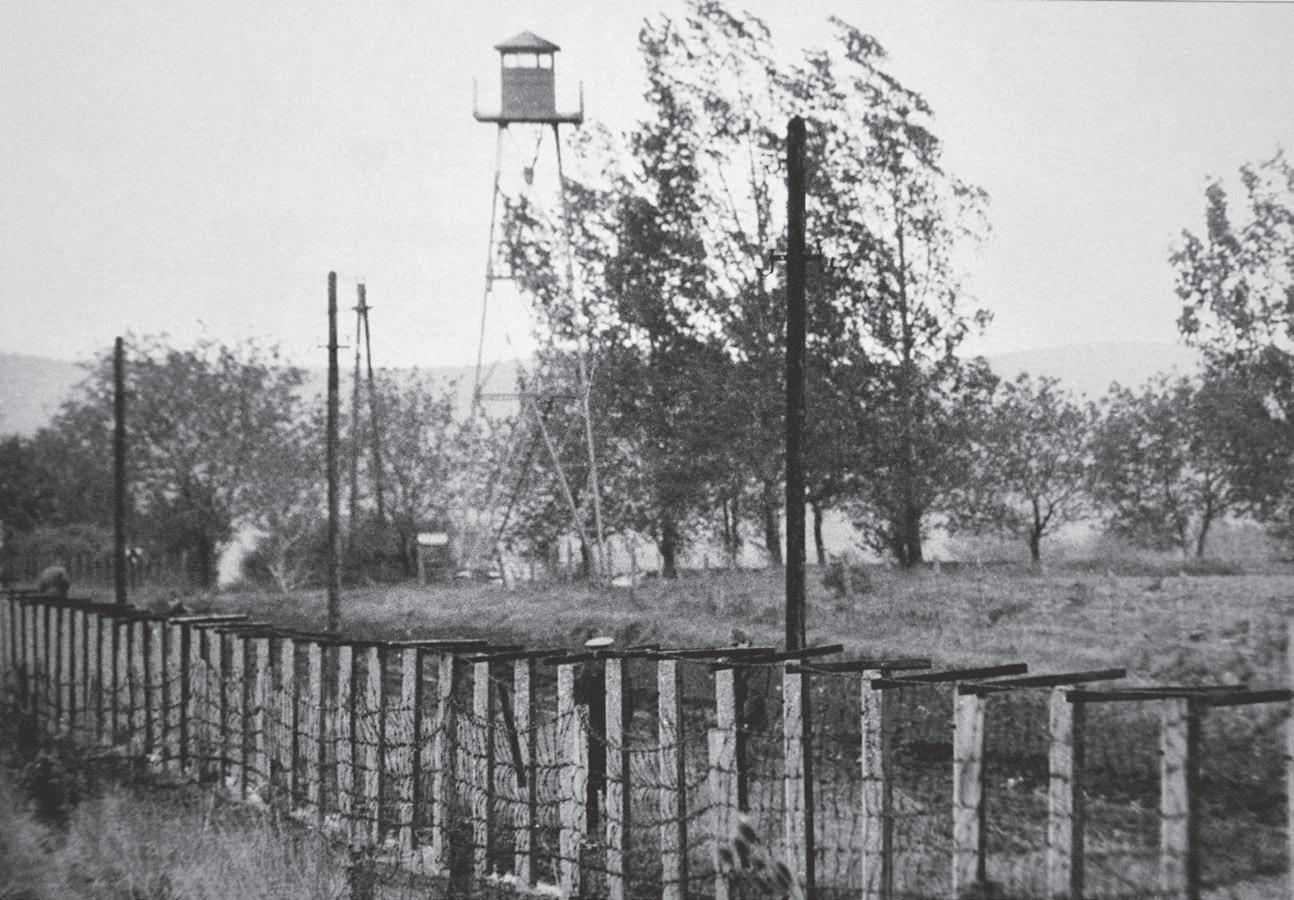
explained things to Gorbachev in person, if he looked him in the eye, he could persuade him and trust he would keep his word.
Trust is dangerous in politics. But Németh had met Gorbachev before, in 1984, right before Gorbachev took power, during an official visit to Hungary. They were working in the agricultural divisions of their respective agencies and spent several days together in a car, visiting cooperatives and state farms. Németh felt there was something kindred about Gorbachev, something he could believe in. A nice reminder that all politics is local. Even at the top.
Gorbachev had been impressed by Hungary’s agronomy, which was far more productive than the Soviet Union’s, despite inferior soil. In a moment of candor, he’d turned to Németh: Tell me, he said, what is the secret? Németh described the reforms he and his unit had put in place, severing aspects of the economic system from central planning, even offering some market incentives. Hungary had already enacted some economic liberalization— essentially a mini-perestroika— precisely what Gorbachev would soon propose for the Soviet Union.
What impressed Németh about Gorbachev was his character.
Gorbachev didn’t accept gifts or drink vodka, as was typical of other Soviet dignitaries. His mind was open and his thinking clear. They spent those days talking, listening, arguing. By the end of the trip, they were on a fi rst name basis.
Mikhail Sergeyevich. Németh still uses the patronymic when he speaks of Gorbachev today.
But of course in politics, friendship— like trust— only goes so far. What Németh needed were concessions. The date of their next meeting was set for March 3, 1989.
THE FLIGHT FROM BUDAPEST TO MOSCOW IS JUST A FEW HOURS,
but politically Moscow was a different world.
Németh was nervous on multiple fronts. He insisted on bringing one of his trusted aides to bear witness to the events and to take notes in case Gorbachev later reneged on his word. But Németh was also concerned about prying eyes within his own politburo. So he asked that the translators be provided by the Soviet Union rather than Hungary, to prevent leaks.
The trip got off to an inauspicious start. Németh had big plans, but the meeting was allotted only twenty minutes. He would have to be quick. In fact, the whole thing was rushed to begin with. Németh had pushed for a meeting so soon in part because Grósz was due to travel to Moscow later that month. If Grósz got there fi rst, Németh feared he might undercut him— warning Gorbachev of the scope of his plans, which might have put an end to the project before it started.
The meeting was formal. They sat together in a small room, fl anked by advisors and translators. There were no hugs or kisses. But Gorbachev remembered Németh from their prior conversations. This was evident to Németh immediately— in his gaze, and the warmth of their handshake.
Wasting no time, Németh cut straight to their issue of broad ideological disagreement: I want to move toward free elections, he said.
